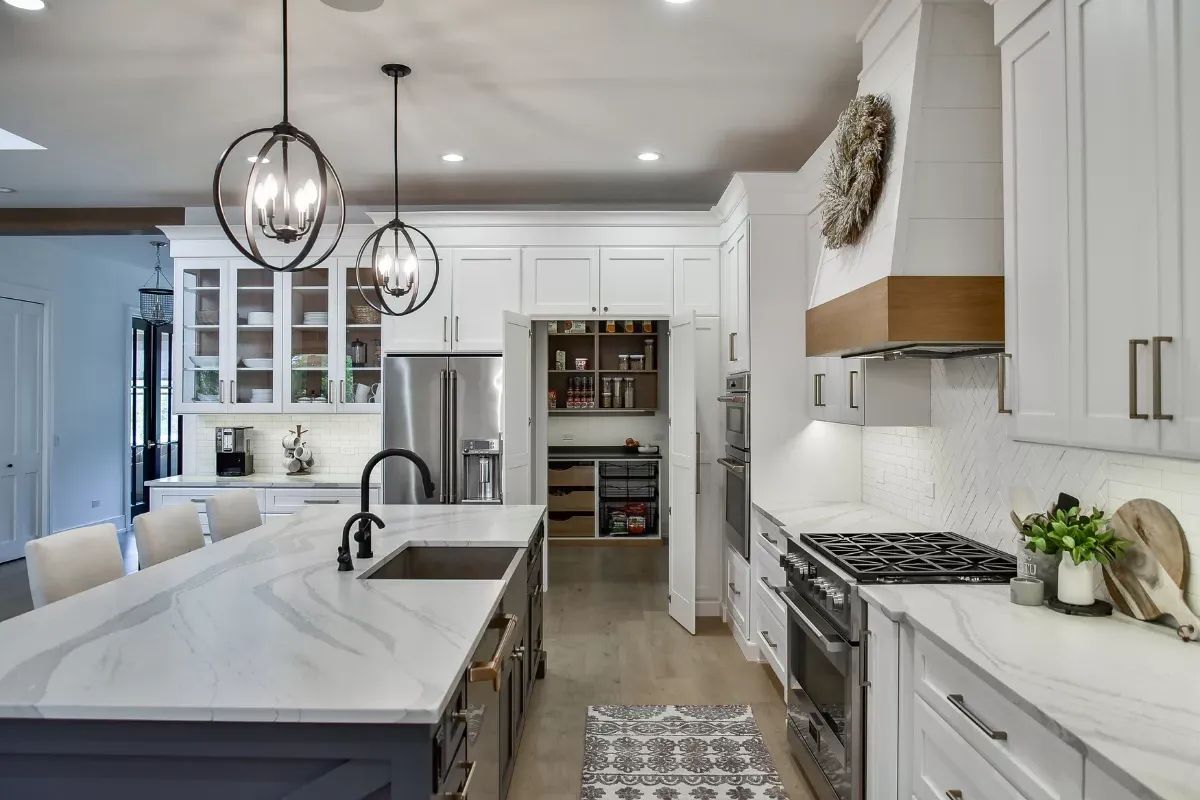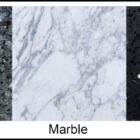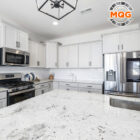If you are remodeling your kitchen, you may be wondering what is the most durable countertop material. Granite, Corian, and concrete are all beautiful options, but none are as durable as these four materials. In this article, we will examine the characteristics of each material and what makes them stand up to wear and tear. For example, a Caesarstone quartz countertop is a popular choice because it replicates marble and is extremely durable. However, a concrete countertop is not very durable, so it will need to be repainted periodically to keep its appeal.
Quartz
When it comes to countertops, quartz is the most durable. Despite its hardness and durability, it lacks the beautiful patterns and color variations found in natural stone. However, it can be manufactured to hide seams and create almost seamless surfaces. Quartz is also more flexible than natural stone, allowing it to be shaped into curved islands and sinks. It can even be used as flooring, with slabs of quartz cut to standard tile sizes.
As an engineered stone, quartz has many advantages over natural stone. Its color is uniform from showroom to installation. Its patterns and colors range from classic white to ebony. It is also more stain resistant than natural stone, and requires very little maintenance. Compared to granite, quartz is also easier to install. However, quartz can discolor over time if exposed to direct sunlight. For this reason, it should be avoided in places that are exposed to direct sunlight.
Another advantage of quartz is that it is non-porous and therefore will not stain. This is especially important in households with children. One test conducted by Consumer Reports included a range of liquids, including coffee, vegetable oil, grape and beet juice, and food coloring. The results showed that quartz countertops had a higher stain-resistance than granite and marble. For those who are hesitant to make the switch, this material is an excellent choice.
Granite
If you are looking for a countertop that will stand the test of time, granite is the material for you. With its durability and long life, granite is an investment that will pay off in the long run. In addition to a lifetime of durability, granite is beautiful, which is a big plus when it comes to a home’s design. It can make a great focal point of a room. Here are some of the reasons why granite is the best choice for your countertop:
The durability of a countertop depends on several factors, including scratch resistance and sealing. Quartz is a manufactured material that begins with 93% natural quartz and is then mixed with pigments and polymers for color and stability. While quartz is practical and easy to maintain, granite is considered to be the best choice for countertops. Granite is one of the most durable natural stones. But there are many things to consider before making your final decision. The durability of your countertop will depend on the type of sealing and maintenance you choose.
Corian
There are some pros and cons to the Corian countertop, and some of them are discussed below. A Corian countertop is made from 60% alumina trihydrate, a mineral extracted from bauxite ore. This mineral is combined with an acrylic syrup known as methyl methacrylate to produce 98% Corian. The material is made by DuPont, which was once the only manufacturer of solid surfaces, but soon new competitors entered the market. Corian was one of the first solid surfaces to be mass-produced, but soon after its patent expired, competition sprang up. New products include Wilsonart, Formica, and Staron.
Another disadvantage of Corian is that it cannot handle high temperatures, like granite. You should use a cutting board when cutting food on a granite work surface. Hot pots and pans can easily damage granite. This type of countertop is more likely to dent, but you shouldn’t worry about scratching it. The scratches are easy to repair, but you don’t want to spend the time sanding it.
Concrete
Aside from being the most durable countertop material, concrete is completely customizable and suits both practicality and aesthetics. It can be used to create cutting boards, trivets, and integrated sinks. When properly sealed, concrete will also resist scorching, scratches, and stains. Compared to granite and marble, concrete is far more affordable than granite and marble countertops. But it is important to note that concrete requires a lot of work to make them look good.
The concrete used for countertop surfaces can be stained with many types of potent additives. For example, if you are planning on using concrete in the kitchen, you should use stainless steel or copper trivets. But if you don’t want to ruin the sealer, you can also embed a trivet into your concrete countertop. This will allow you to access your hot pans easily. Alternatively, you can buy hot pads and use them.
As with any countertop material, concrete requires proper maintenance to ensure that it lasts for many years. Despite the fact that concrete is scratch-resistant, the countertop will need some regular cleaning and maintenance. It is best to avoid using a knife on concrete countertops, as it will dull the blade and damage the counter. If you want a modern, sleek kitchen, then you should opt for concrete countertops. But it’s important to note that concrete countertops are not for everyone. If you’re planning on having children, or if your house is prone to poor maintenance, then concrete countertops aren’t for you.
Tile
In terms of durability, tile is the most durable countertop option. It can withstand high heat and can accommodate hot pans, and can be easily cleaned with a microfiber cloth. Its unique properties make it stain and cut-resistant. While hot pots can be placed on a tile countertop without causing any damage, it should be noted that it can be damaged by heavy items. Luckily, tile is also easy to replace if one breaks. However, if you have an uneven surface, you may have to worry about chipping and wobbling of the countertop over time.
Other countertop materials include porcelain and granite. Both of these are renowned for their durability. Compared to granite and quartz, tile is stronger and virtually as hard. However, there are many disadvantages to ceramic tile. It is prone to scratches, chips, and stains, but it’s also easy to clean and maintain. In addition, ceramic tile can blend into any decorating scheme. Tile is also resistant to heat, which makes it an ideal choice for many homes.
Ultra compact surfacing
When choosing a new countertop material, you have several choices to choose from, including solid surface and ultracompact surfacing. Ultra-compact surfaces are a relatively new material that is often overlooked in countertop material lists. This new product has a unique manufacturing process that produces a product that is remarkably durable. The manufacturing process is designed to replicate the metamorphic change of natural stone, which is responsible for its exceptional strength and technical characteristics.
One ultra-compact surfacing option is called Dekton. This material consists of a highly refined blend of resins, pigments, and polymers. The resulting countertop does not require seam installations, is flexible, and can be installed to match existing countertops. It also integrates with backsplashes and sinks. Meanwhile, ultra-compact surfacing uses raw materials such as glass, porcelain, and quartz that are pressed together under extreme heat to form a seamless countertop. Because of this superior durability, ultra-compact surfaces are regarded as one of the most durable countertop options on the market today.
Before the advent of ultra-compact surfacing, the most durable countertop materials were Cambria and Silestone. Quartz countertops have been consistently rated as the best overall choice by Consumer Reports since 2005, so the next rating should be in favor of ultra compact surfacing. You can rest assured that your countertop will remain durable and look great for many years to come. The durability of ultra-compact surfacing means that you will never have to worry about replacing it. You’ll also be able to increase the value of your home by choosing a lifetime material.
Solid surface material
One of the toughest countertops available is DuPont Corian. This solid material is so strong, it comes with an industry-leading warranty. It is resistant to heat, water, staining agents, and even heavy objects. All hard surface countertop brands offer up to 12 years of service, and their non-porous surface prevents dirt from gathering and fostering bacteria. This material is also the most cost-efficient option, and is better than wood, natural stone, tile, and concrete.
While the cost of solid surface countertops is affordable, they are not as scratch resistant as granite or marble. You’ll need to clean them with simple, low-priced methods to prevent damage from occurring. As a result, you will have to avoid cutting directly on them. It’s also difficult to repair scratches or other blemishes on solid surface materials. Using strong chemicals can also damage them.
Another popular countertop material is solid surface. These countertops are made of mineral particles, a bonding resin, and added pigments. The natural mineral filler used is alumina trihydrate. Resins are made of polyester or acrylic. Acrylic-based solid surface material is more durable and has a matte appearance. It is easier to create a seamless countertop because adhesives adhere better to acrylic. So, it may not be the best option for you.
Wood
Although wood is one of the most common types of countertop material, it is not the most durable. Whether you’re looking for an economical option or a durable option, it’s best to consider the intended use of your countertop. Wood countertops are ideal for kitchens in busy offices and high-traffic environments. High-quality laminate materials mimic the look of wood and are durable enough for heavy use. Porcelain is another type of durable countertop material that’s virtually impervious to water damage. This material is ideal for busy chefs’ kitchens, as it requires minimal upkeep.
There are several wood types for countertops, including oak, walnut, maple, and cherry. While they’re all durable, they are not without their disadvantages. Wood countertops can be difficult to find in natural colors, but hardwoods are the most durable. You can even find sustainable wood species. While it is difficult to find hardwoods in natural colors, you can choose to stain or paint your wood countertops to match your decor. However, painting wood can dull its natural beauty and isn’t the most durable countertop material.





